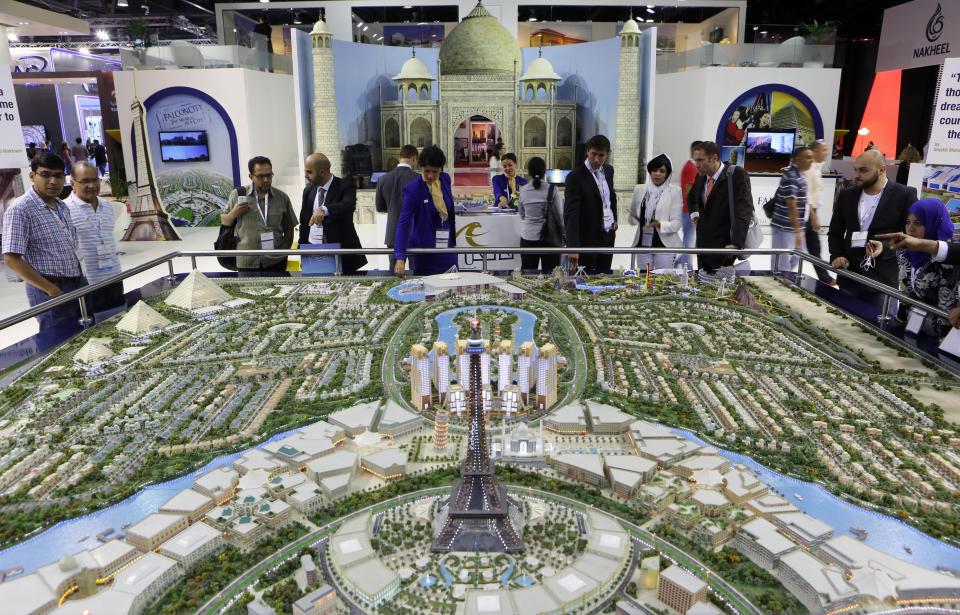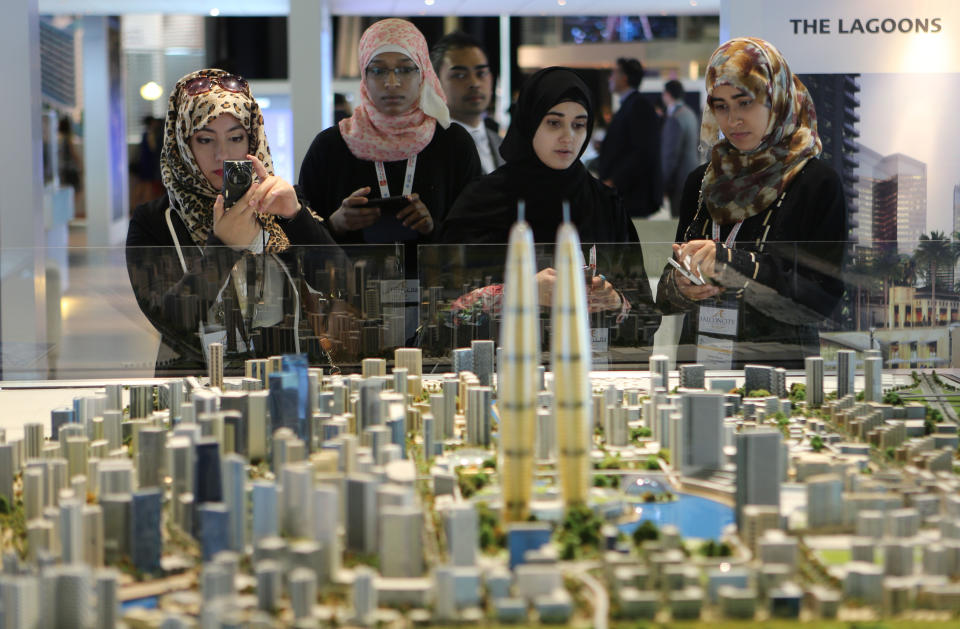Dubai real estate still at risk of another bubble
DUBAI, United Arab Emirates (AP) — A global property consultant said Monday there are worrying signs that Dubai could be facing another economic bubble after property prices jumped more than 22 percent last year and rents by 17 percent.
Dubai, which is part of the oil-rich United Arab Emirates, has long had a penchant for monumental buildings and development projects, notably a large area around a new airport with hotels, housing and a new conference center to host the world Expo in 2020. Dubai is already home to the world's tallest building — the Burj Khalifa — and numerous manmade islands in the shape of palm trees and a map of the world.
In many sectors, the city is still recovering from the 2009 financial crash that saw property values in Dubai slashed by more than half. The city's government ultimately needed a $10 billion bailout from neighbor Abu Dhabi, and Dubai-owned companies are still paying back tens of billions of dollars in loans after the city's frenetic building boom came to a halt.
In its annual report on real estate trends in the UAE, Jones Lang LaSalle pointed to a number of concerns, including unsustainable growth in property costs and speculative buying. Prices climbed even more after it was announced in November that Dubai would host the world Expo.
Concerns of another bubble have been lurking for months. The International Monetary Fund said in a statement earlier this year that Dubai's megaprojects, if not "implemented prudently," could exacerbate the danger of a bubble and create additional risks for government-linked companies and the banking system.
Jones Lang LaSalle said that the rise in residential property prices last year was "irrational." But unlike the 2009 financial crisis that rocked Dubai, the investment and advisory firm says the market is "smarter" this time around. The firm also said rents are likely to continue to climb, but not expected to soar as they did in 2013.
The firm said interest by local and international investors is strong, with more than $44 billion pumped into Dubai's real estate market in 2013. The IMF says economic growth in the UAE is expected to remain strong at 4.5 percent this year.
Mega projects that were either put on hold, significantly slowed or not initiated during the financial crisis are coming back to life again because of growing confidence in the UAE's market, the firm said. Some of the plans include building-up the Dubai Canal and the city's waterfront.
Additionally, the group says, investors are more cautious, there are significant levels of new housing units on the market and regulations have improved. Most notably, Dubai doubled property registration fees from two to four percent to discourage flipping, or rapid-paced buying and selling that can result in sudden price increases. Some analysts have noted, though, that the extra two percent is being tacked onto the sale price and so is not enough on its own to deter flipping.


